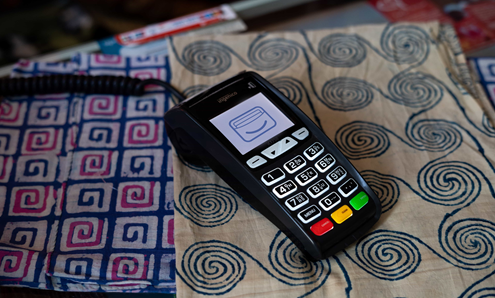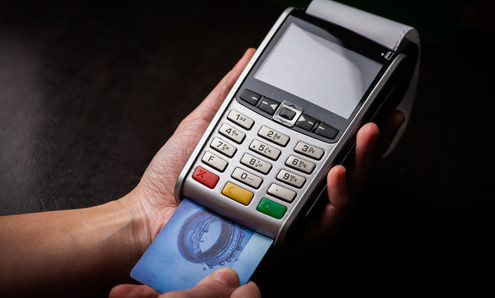The credit surcharge ban came into play on 13th January 2018 and meant businesses could no longer add a surcharge to credit or debit card purchases anywhere in the European Economic Area (EEA).
For anyone wanting to dig a little deeper into the fine print, the update was part of a new set of EU regulations called the European Payment Services Directive 2 - we’re about to break it down into human language here though.
What are card surcharges?
It feels like a lifetime ago already, but it was the extra bit of money businesses used to charge on credit or debit card payments to cover the cost they’d incur when processing it.
Why did the ban come into place?
Mainly to make sure customers weren’t being duped by unfair or hidden charges when the time came to make a purchase. In some cases, credit card payments cost businesses as much as 3-5% of the purchase price, and some were passing those fees onto the customer, which the government just didn’t think was fair.
The hope was that these new regulations would:
- Increase competition in the payments industry,
- Add another layer of protection to customers, and
- Introduce a set of common standards.
Who does it affect?
Any business that accepts credit or debit card payments - and in an increasingly cashless society, that’s a lot. Some industries felt the effects more than others though, like:
- Travel companies,
- Takeaway food apps, and
- Ticket booking sites.
And then there were governmental implications too. For example, the HMRC and DVLA used to charge £2.50 for any credit card transactions.
Unfortunately, with the costs now eating into business’ bottom lines, it’s likely smaller businesses with smaller margins will bear the brunt of the ban - don’t worry, we’ll be covering some workarounds soon.
Corporate caveat
It’s worth noting, the ban only applies to payments made with personal credit or debit cards; not corporate ones. Basically, that means businesses (usually B2Bs) who take corporate credit or debit card payments can still charge a fee, however, it cannot be higher than the costs they incur.
What can businesses do?
If you’re worried the ban’s going to play havoc with your hard-earned profits there are a few roads you could go down.
|
Option |
Pro |
Con |
|
Increase your prices |
You can cover the cost of the shortfall without your profit margin paying the price. |
Customers might complain about the increase - communicate it right and you should be okay, though. |
|
Switch to a direct debit model |
No costs, and streamlines your payments. |
Not suitable for most retail business set-ups. |
|
Do nothing |
Your customers will be happy as Larry because they’ll be paying less. |
Absorbing the costs will chip away at your business’ earnings. |
|
Explore other areas you could save money |
You save money and make up for the shortfall without your customers being impacted. |
There isn’t one really! |
Sticking with the ‘explore your options’ theme, make sure you’re getting the best deal with your current card terminal too; different providers charge different fees and you could benefit from a better deal if you shop around.
Our promise to you
Unlike most card payment providers, we don’t treat everyone the same because we know they’re not. Every business has its own way of working and our pricing structure reflects that every step of the way.
To get a real understanding of what our customers are about, what they need and the most suitable solution for them, we always send an expert to consult first and then quote later.
Interested? Book your free payment consultation on 0808 274 2017 today.




